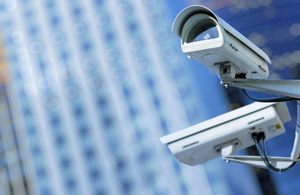Surveillance Camera Commissioner releases guidance for police on use of Live Facial Recognition
The guidance is for forces to follow when considering the deployment of Live Facial Recognition (LFR) surveillance camera technology.

Tony Porter, Surveillance Camera Commissioner (SCC), has issued best practice guidance, ‘Facing the Camera’, to all police forces in England and Wales.
It is the first guidance to be released since the Court of Appeal handed down its judgment on Bridges v South Wales Police (PDF, 743 KB) earlier this year – the SCC was an intervener in the case and a key contributor.
The High Court ruled that South Wales Police’s use of LFR was in accordance with the law, but this was later overturned by the Court of Appeal.
The SCC is the independent regulator of the overt use and public operation of surveillance camera systems by the police in England and Wales. This includes systems incorporating LFR. He supports the police having legitimate recourse to surveillance camera systems including LFR where they are necessary to keep us safe and secure, within the clear provisions of the law. Transparency of lawful use is essential to public trust and confidence in such matters.
Tony Porter said:
Over the 7 years I have been Commissioner I have continually said that the police should be able to use technology to keep us safe and secure but this must be balanced against our civil liberties and the law.
The High Court ruled that South Wales Police’s use of LFR was in accordance with the law, but this was later overturned by the Court of Appeal.
The guidance I’ve issued today will help forces who want to use LFR identify how to do so in accordance with the current legal framework.
Where there is a proportionate need to deploy intrusive technology, it is right that the police have the guidance to do that – Facing the Camera will go some way to help them before decisions are made to deploy.